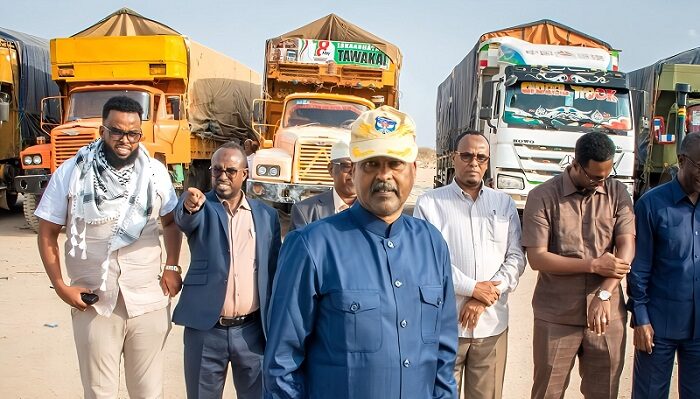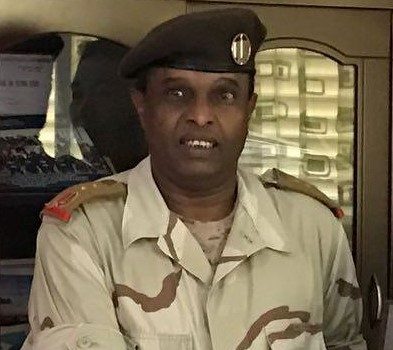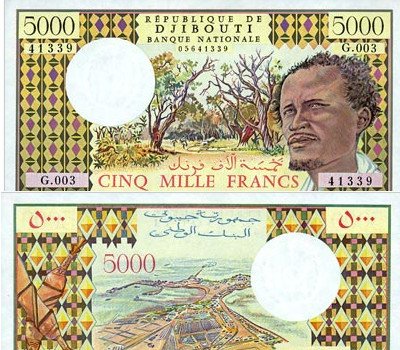
Djibouti : Ismail Omar Guelleh oriente l’aide sécheresse vers son clan à Gerisa et Lughaya, excluant les autres victimes.

- Contexte : Crise humanitaire en Afrique de l’Est
L’Afrique de l’Est traverse une crise humanitaire aiguë, exacerbée par des facteurs climatiques sévères. Le phénomène de La Niña a entraîné des précipitations insuffisantes et des températures élevées, provoquant une sécheresse dévastatrice. Cette situation, couplée à des conflits et à l’instabilité politique régionale, rend l’accès à l’aide humanitaire extrêmement difficile. Les organisations humanitaires internationales sonnent l’alarme, appelant à une action urgente pour fournir de l’eau, de la nourriture et des soins médicaux vitaux afin d’éviter une catastrophe de grande ampleur.
2. Djbouti : Une distribution d’aide sélective et clanique
Dans ce contexte de crise généralisée, des pratiques préoccupantes ont été rapportées concernant la distribution de l’aide humanitaire par les autorités djiboutiennes. Selon les informations disponibles, le Président Ismaïl Omar Guelleh aurait ordonné une opération de distribution ciblée excluant une grande partie des populations djiboutiennes pourtant en détresse.
L’aide alimentaire destinée aux victimes de la sécheresse a été dirigée spécifiquement vers les villes de Gerisa et Lughaya, situées au Nord-Est du Somaliland. Le Colonel Mohamed Djama Doualeh, chef de la Garde Républicaine et cousin du Président Guelleh, originaire de la région du Guban, a été chargé de cette opération. Il est établi que les populations natives de Gerisa et Lughaya appartiennent au clan Mamasan/Issa, le même clan que celui du Président Guelleh et du Colonel Doualeh. Des photos et vidéos attestent de la présence du Colonel Doualeh et d’autres membres de la famille étendue de Guelleh lors de ces distributions.
3. Conséquences mortelles à l’intérieur de Djibouti : Populations abandonnées
Pendant que l’aide était acheminée vers le Somaliland au bénéfice exclusif du clan présidentiel, des populations djiboutiennes frappées par la même sécheresse se trouvaient dans une situation désespérée, privées de l’assistance de leur propre État :
À Badolital, localité proche de Yoboki dans la région Sud-Ouest de Djibouti, des décès dus à la soif ont été rapportés, notamment ceux de Madame Hasna Abdara et de Monsieur Youssouf Bahdon Youssouf (dit Dato).
À Hol-Hol, des détournements d’aide alimentaire ont été signalés, impliquant un proche cousin d’Ismaïl Omar Guelleh.
Ces cas illustrent un abandon criant des populations vulnérables sur le territoire national djiboutien, qui auraient dû être les premiers bénéficiaires légitimes de l’aide humanitaire de l’État.
4. L’affaire Garba-Issa : Répression et implications inquiétantes
La dimension sectaire du régime s’est également manifestée de manière tragique dans le contexte du massacre de Garba-Issa, en Éthiopie. Le 24 juillet 2021, des populations civiles majoritairement issues de l’ethnie Somali/Issa ont été victimes d’un massacre de masse perpétré par des officiers supérieurs des forces paramilitaires éthiopiennes dans la localité de Garba-Issa, région de Sitti.
Des informations lient ce massacre au régime djiboutien, affirmant que les officiers éthiopiens auraient agi sur demande de Djibouti en échange de financements. Lorsque des importateurs de légumes djiboutiens, proches de la famille du ministre Ilyas Moussa Dawaleh, ont commencé à collecter des fonds pour envoyer de l’aide humanitaire aux rescapés de ce massacre, ils ont été arrêtés. Le Président Guelleh les a accusés d’être des « instigateurs de haine clanique ». Ils ont été condamnés à deux et trois mois d’emprisonnement. Cette répression violente de la solidarité envers les victimes de Garba-Issa est perçue comme une indication troublante de l’implication du régime djiboutien dans la planification ou l’instigation de ce massacre.
5. Conclusion : Un pouvoir clanisé aux conséquences potentiellement déstabilisatrices
La concentration de l’aide humanitaire sur la base de l’appartenance clanique, l’abandon mortel des populations non affiliées au clan présidentiel sur le territoire national, et la répression violente de la solidarité transfrontalière suite au massacre de Garba-Issa, démontrent une politique sectaire profondément ancrée sous le régime d’Ismaïl Omar Guelleh. Ces pratiques illustrent une « clanisation » profonde du pouvoir djiboutien, où les ressources de l’État, y compris l’aide vitale en période de crise, sont instrumentalisées au service d’un réseau familial et clanique restreint.
Ce clientélisme ethno-clanique systématique, couplé à des allégations graves d’implication dans des violences ciblées, constitue un facteur majeur de division sociale et d’injustice. Comme l’ont tristement démontré d’autres pays, ce genre de politique exclusive est un terreau fertile pour les tensions et les conflits, risquant d’entraîner l’État sur une pente dangereuse vers une instabilité accrue, voire un conflit interne. La crise humanitaire actuelle met en lumière, de façon dramatique, les conséquences humaines désastreuses de ce système de gouvernance.
Hassan Cher
The English translation of the article in French.
Djibouti: Ismail Omar Guelleh directs drought aid to his clan in Gerisa and Lughaya, excluding other victims.
1- Background: Humanitarian crisis in East Africa
East Africa is experiencing an acute humanitarian crisis, exacerbated by severe climatic factors. The La Niña phenomenon has led to insufficient rainfall and high temperatures, causing devastating drought. This situation, coupled with conflict and regional political instability, is making access to humanitarian aid extremely difficult. International humanitarian organisations are sounding the alarm, calling for urgent action to provide water, food and vital medical care in order to avert a large-scale disaster.
2- Djbouti: Selective and clannish distribution of aid
Against this backdrop of widespread crisis, worrying practices have been reported regarding the distribution of humanitarian aid by the Djibouti authorities. According to available information, President Ismaïl Omar Guelleh ordered a targeted distribution operation that excluded a large proportion of Djibouti’s population, even though they were in distress.
Food aid for victims of the drought has been directed specifically to the towns of Gerisa and Lughaya, in north-eastern Somaliland. Colonel Mohamed Djama Doualeh, head of the Republican Guard and cousin of President Guelleh, originally from the Guban region, was put in charge of this operation. It has been established that the native populations of Gerisa and Lughaya belong to the Mamasan/Issa clan, the same clan as that of President Guelleh and Colonel Doualeh. Photos and videos attest to the presence of Colonel Doualeh and other members of Guelleh’s extended family at these distributions.
3- Deadly consequences inside Djibouti: populations abandoned
While aid was being channelled to Somaliland for the exclusive benefit of the presidential clan, Djiboutian populations hit by the same drought found themselves in a desperate situation, deprived of assistance from their own state:
In Badolital, a locality near Yoboki in the south-west region of Djibouti, deaths from thirst were reported, notably those of Mrs Hasna Abdara and Mr Youssouf Bahdon Youssouf (known as Dato).
In Hol-Hol, misappropriation of food aid was reported, involving a close cousin of Ismaïl Omar Guelleh.
These cases illustrate the blatant abandonment of vulnerable populations on Djibouti’s national territory, who should have been the first legitimate beneficiaries of the State’s humanitarian aid.
4- The Garba-Issa affair: repression and worrying implications
The sectarian dimension of the regime was also tragically demonstrated in the context of the Garba-Issa massacre in Ethiopia. On 24 July 2021, civilians mainly of Somali/Issa ethnicity were the victims of a mass massacre perpetrated by senior officers of the Ethiopian paramilitary forces in the locality of Garba-Issa, in the Sitti region.
Reports link this massacre to the Djibouti regime, claiming that the Ethiopian officers acted at Djibouti’s request in exchange for funding. When Djiboutian vegetable importers close to the family of Minister Ilyas Moussa Dawaleh began collecting funds to send humanitarian aid to the survivors of the massacre, they were arrested. President Guelleh accused them of being « instigators of clan hatred ». They were sentenced to two and three months’ imprisonment. This violent repression of solidarity with the victims of Garba-Issa is seen as a disturbing indication of the Djibouti regime’s involvement in planning or instigating this massacre.
5- Conclusion: Clan-based power with potentially destabilising consequences
The concentration of humanitarian aid on the basis of clan affiliation, the lethal abandonment of populations not affiliated to the presidential clan on national territory, and the violent repression of cross-border solidarity following the Garba-Issa massacre, demonstrate a deeply rooted sectarian policy under the Ismaïl Omar Guelleh regime. These practices illustrate a profound « clanisation » of power in Djibouti, where state resources, including vital aid in times of crisis, are used to serve a small family and clan network.
This systematic ethno-clan clientelism, coupled with serious allegations of involvement in targeted violence, is a major factor in social division and injustice. As other countries have sadly demonstrated, this kind of exclusive policy is a fertile breeding ground for tension and conflict, risking dragging the state down a dangerous slope towards increased instability and even internal conflict. The current humanitarian crisis dramatically highlights the disastrous human consequences of this system of governance.
Hassan Cher


 Previous Article
Previous Article Next Article
Next Article Don’t Forget To Stretch After Your Workout
Don’t Forget To Stretch After Your Workout  Djibouti/FSD/Suisse : Les rôles du cabinet Canonica & Associés à Genève et de Haibado Ismail Omar dans les détournements du Fonds Souverain de Djibouti
Djibouti/FSD/Suisse : Les rôles du cabinet Canonica & Associés à Genève et de Haibado Ismail Omar dans les détournements du Fonds Souverain de Djibouti  Djibouti / Arabie saoudite : L’ambassadeur Dya-eddine Saïd Bamakhrama met Djibouti sous tutorat saoudien en échange de cinq million de Dollars US.
Djibouti / Arabie saoudite : L’ambassadeur Dya-eddine Saïd Bamakhrama met Djibouti sous tutorat saoudien en échange de cinq million de Dollars US.  Djibouti/UA/Kenya : Mahamoud Ali Youssouf va-t-il retirer sa candidature à la Présidence de la Commission de l’Union Africaine ?
Djibouti/UA/Kenya : Mahamoud Ali Youssouf va-t-il retirer sa candidature à la Présidence de la Commission de l’Union Africaine ?  Djibouti: le fonds souverain de Djibouti servira à blanchir l’argent du trafic d’armes, de la drogue et du terrorisme
Djibouti: le fonds souverain de Djibouti servira à blanchir l’argent du trafic d’armes, de la drogue et du terrorisme  Djibouti : l’académie militaire d’interarmées d’Arta forme des Djiboutiens ou des futurs officiers de l’armée de la Somaliland ?
Djibouti : l’académie militaire d’interarmées d’Arta forme des Djiboutiens ou des futurs officiers de l’armée de la Somaliland ?  Djibouti : une “Semaine de la justice” en trompe-l’œil ?
Djibouti : une “Semaine de la justice” en trompe-l’œil ?  Djibouti : La cessation de payement du trésor public, le risque d’hyperinflation et de dévaluation du Franc Djiboutien sont là.
Djibouti : La cessation de payement du trésor public, le risque d’hyperinflation et de dévaluation du Franc Djiboutien sont là.